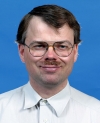 |
Frank Stephan's addresses are:
(1) Department of Mathematics, National University of Singapore
2 Science Drive 2, Singapore 117543
Primary Office: S14#04-13, Telephone +65-6516-2759
(2) School of Computing, National University of Singpore
Law Link, Computing 1 (COM1), Singapore 117590
Shared Secondary Office: COM1#02-16, Telephone +65-6516-4246
The telefax in the main office of the Department of Mathematics
is +65-67795452
The email address is
fstephan@comp.nus.edu.sg;
other email addresses are read less frequently, thus please use this one.
|
